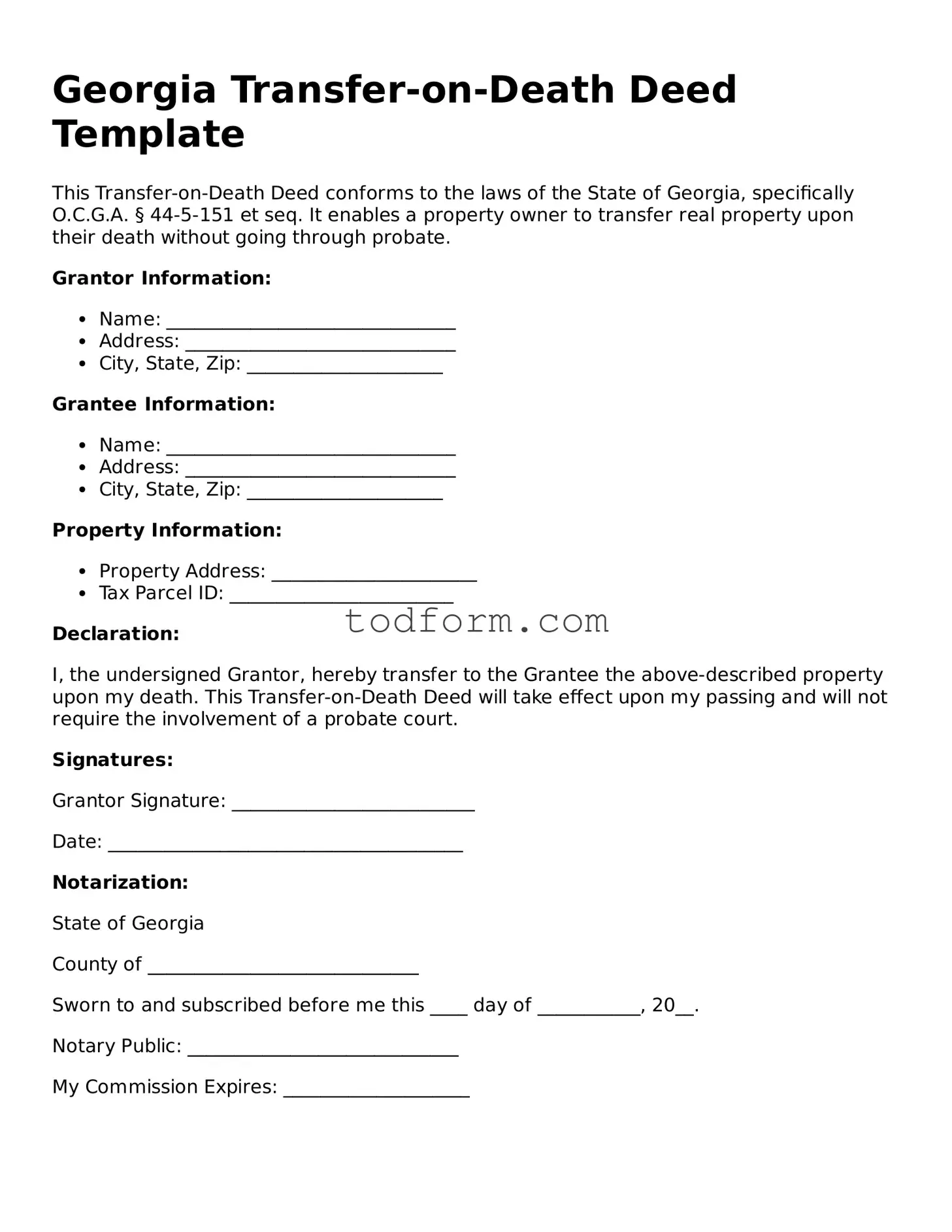Georgia Transfer-on-Death Deed Template
This Transfer-on-Death Deed conforms to the laws of the State of Georgia, specifically O.C.G.A. § 44-5-151 et seq. It enables a property owner to transfer real property upon their death without going through probate.
Grantor Information:
- Name: _______________________________
- Address: _____________________________
- City, State, Zip: _____________________
Grantee Information:
- Name: _______________________________
- Address: _____________________________
- City, State, Zip: _____________________
Property Information:
- Property Address: ______________________
- Tax Parcel ID: ________________________
Declaration:
I, the undersigned Grantor, hereby transfer to the Grantee the above-described property upon my death. This Transfer-on-Death Deed will take effect upon my passing and will not require the involvement of a probate court.
Signatures:
Grantor Signature: __________________________
Date: ______________________________________
Notarization:
State of Georgia
County of _____________________________
Sworn to and subscribed before me this ____ day of ___________, 20__.
Notary Public: _____________________________
My Commission Expires: ____________________
